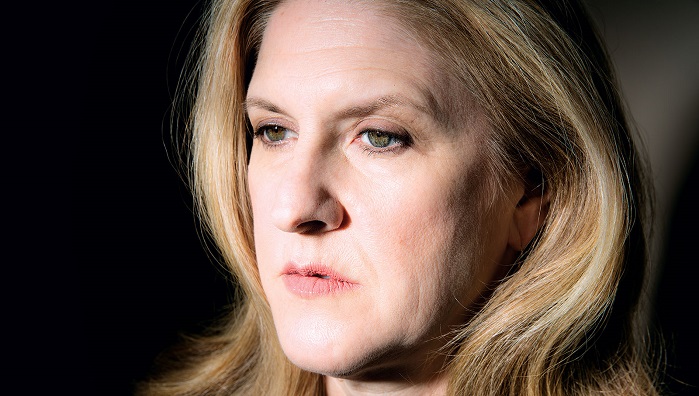In a new Bloomberg piece sympathetic to abortion, abortion clinic owners decried how difficult pro-lifers are making it for them to do business.
Bloomberg reporter Meaghan Winter made little attempt to present an unbiased picture in the piece “Why It’s So Hard to Run an Abortion Clinic – and Why So Many Are Closing.” Winter interviewed several abortion clinic owners and operators, including Julie Burkhart, who took over late-term abortionist George Tiller’s practice in Kansas after he was shot and killed at his church.
“We are only asking to be treated like any other business that provides health care,” Burkhart shared words from a letter she wrote to a local radio station. The station rejected ads from Burkhart’s abortion clinic because it did not want to be associated with the abortion practice, according to the report.
Winter painted Burkhart’s abortion clinic, which is now named South Wind Women’s Center, as being unjustly plagued by troubles because other businesses don’t want to be connected with abortion.
CLICK LIKE IF YOU’RE PRO-LIFE!
She wrote:
The stigma around abortion prevents Burkhart’s nonprofit from performing many of the everyday transactions essential to businesses. She and other clinic owners have had trouble securing mortgages, medical insurance, contractors, and someone willing to deliver Band-Aids and bottles of water. Especially in rural and conservative regions, a wide range of companies and organizations decline to work with abortion providers, either for reasons of personal conscience or because of fears that being associated with abortion will cost them business.
… South Wind is the only abortion clinic for at least 150 miles in any direction. The two other abortion providers in Kansas are a Planned Parenthood affiliate and a private practice in Overland Park, almost 200 miles away. Because there are so few places to get an abortion in the region, patients often come from Oklahoma, Missouri, and Texas. Every week, Burkhart flies in a physician willing to perform second-trimester abortions. South Wind spends about $20,000 on airfare annually, and sometimes patient and doctor travel across state lines to meet at South Wind.
Burkhart and other abortion clinic operators also claimed they are experiencing financial woes due, in part, to legislation enacted in various states requiring abortion clinics to meet basic health and safety standards.
“South Wind almost breaks even, taking in about $1 million a year,” the report states.
However, $1 million a year is no small amount, and, according to the report, South Wind is expanding. Burkhart said they are building a new abortion clinic in Oklahoma to do late-term abortions up to 24 weeks of pregnancy. She said she hopes the clinic will be open this summer.
Winter also spoke to Amy Hagstrom Miller, founder and chief executive officer of the Whole Woman’s Health abortion clinic chain. At the U.S. Supreme Court level, Hagstrom Miller is challenging the pro-life Texas law responsible for closing abortion clinics that could not guarantee they could protect the health of Texas women. The law has been credited with saving the lives of more than 10,000 unborn children. The high court is scheduled to hear the challenge in March.
“This is probably the most difficult business you could ever run,” Hagstrom Miller said of her abortion chain.
Hagstrom Miller claimed her abortion businesses operate at a 1 percent or 2 percent profit or at a loss.
“We have made it next to impossible to keep our doors open just from patient receipts,” Hagstrom Miller said. “In some ways, we’ve done that to ourselves by being so committed to the social justice and human-rights part of our work and knowing the women we serve can’t afford those fees.”
To bring in a pro-life perspective, Winter interviewed Melissa Conway, a spokeswoman for Texas Right to Life.
“Their focus is where the dollar is. It’s not protecting women,” Conway said. “Especially within the last few years, the cost of abortion services is increasing, and so it’s a very profitable business.”
Winter’s biased article was linked to a Bloomberg report that appears to confirm what Conway said: Abortion clinics closing at record rates as demand for abortion declines.
Since 2011, at least 162 abortion clinics have shut or stopped doing abortions; 21 new abortion clinics opened in that same time period, the report states. The top four states that saw abortion clinics close were Texas with 30-plus, Iowa with 14, Michigan with 13 and California with 12, according to the report.
Lack of business has been a major factor in the closing of abortion clinics, according to the report. The news group found that of the 162 abortion clinics that closed, 19 percent were in counties with fewer than 100,000 people. This seems to indicate that rural abortion clinics aren’t doing as well financially. Last week, a Planned Parenthood abortion clinic in Blacksburg, Virginia announced that it was closing for this very reason, LifeNews reported. A Bridgeport, Connecticut abortion clinic also told Bloomberg it closed in 2015 because of reduced demand.
While abortion activists blame the closures on laws that require basic health and safety protections for patients, the report indicates that many factors are involved, including the lack of business and fewer doctors willing to do abortions. These numbers, coupled with plunging national abortion statistics, point to the fact that fewer women actually want abortions. As modern technology shows clear pictures of unborn babies in the womb, and as more pro-life groups offer women alternatives to abortion, more women have access to the education and resources to choose life for their unborn babies.








